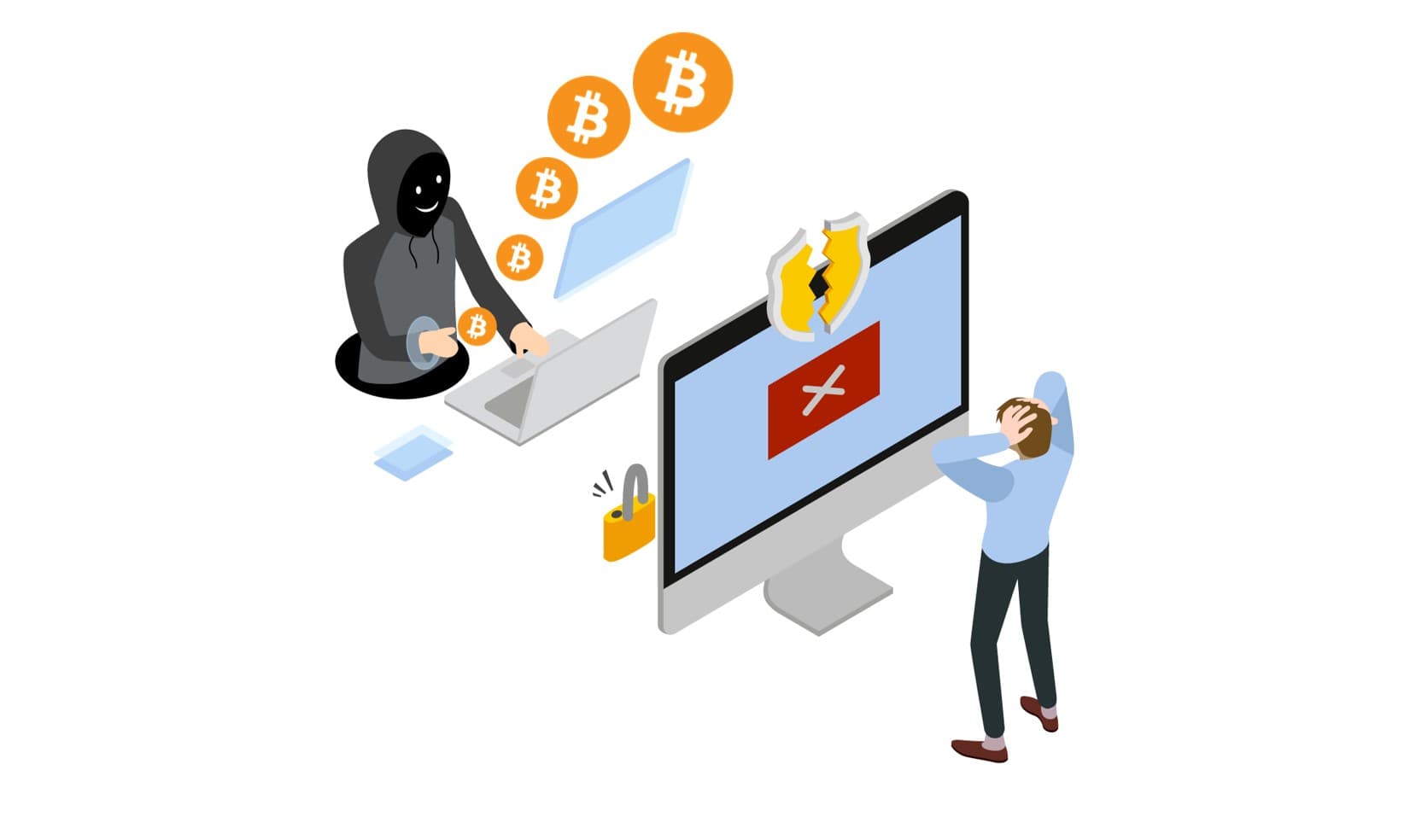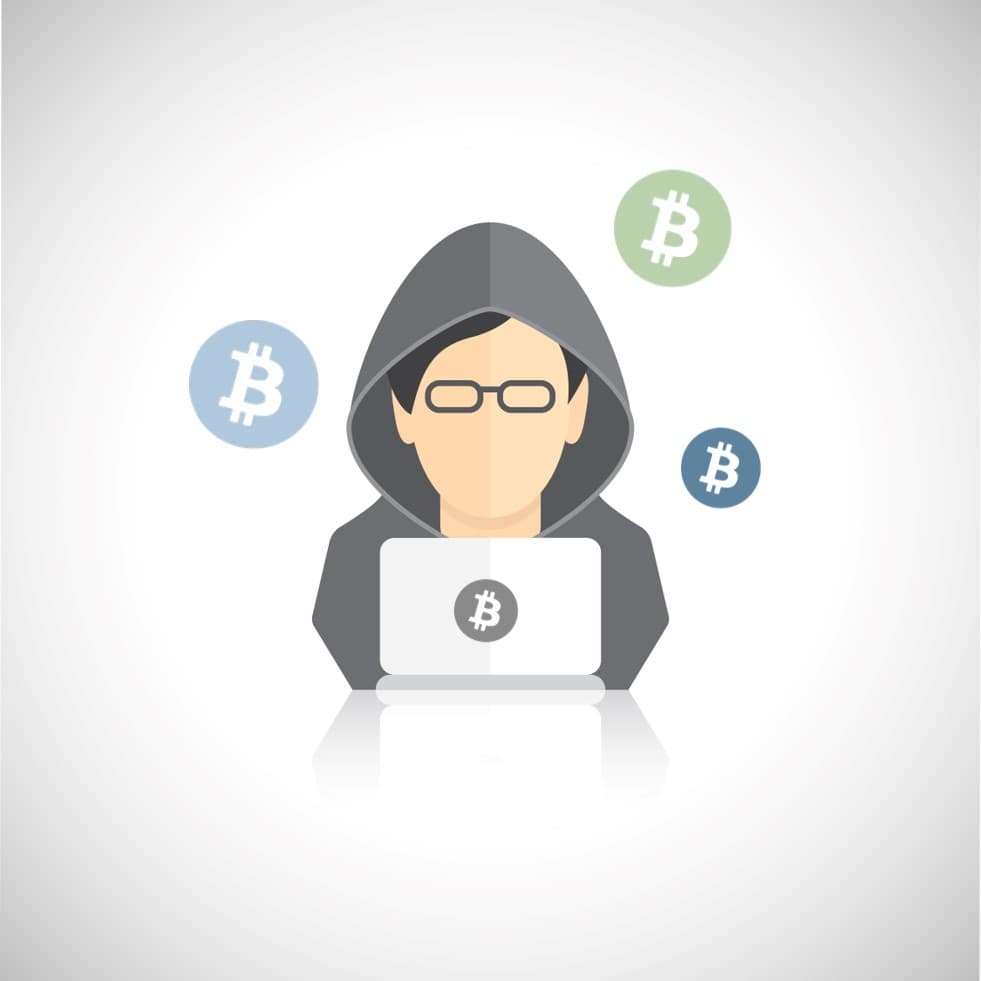
The First Bitcoin Transaction
The first Bitcoin transaction occurred in January 3, 2009. Satoshi transferred 50BTC to this address (1A1zP1eP5QGefi2DMPTfTL5SLmv7DivfNa).
And later in January 12, 2009, another cryptographer Hai Finney took control of the Bitcoin software and from there, the peer-to-peer payment system blossomed attracting more users.
As beneficial as this innovation was, there was still a way to reap more from it. It didn’t matter if it was at the expense of another user or the entire blockchain network.

It’s clear, Bitcoin offers a much flexible way to get payments across the world. This development and its decentralized status positions the Bitcoin as one of the preferred methods of payment online.
Many online stores, B2B, B2C businesses are including Bitcoin as a payment option expanding its reach and increasing its value.
With the legitimacy of Bitcoin comes its Darkside…
The anonymous nature of its transactions now draw the interest of criminals, preferring this digital coin as a means to get gratified without getting traced.
Drug barons, traffickers in ammunitions, Kidnappers sort the Bitcoin as a getaway bill to deals of the underworld as the value of the coin continues to rise in the open cryptocurrency market.
In 2018, there has been series of complaints logged on email blackmailing.
Its recipients are threatened to pay a certain sum of money $$$$ defined in Bitcoin to the blackmailer, or else a secret would be revealed to the someone dearest to them.
This being said, daring criminals are on the prowl wreaking havoc to families through this means and most times varnishing with their Bitcoins, leaving the victims devastated.
Let’s examine these Bitcoin scams currently undoing many and know how to flee from them if you’re in the cryptocurrency space.
SEE ALSO: Cryptojacking Attacks – Clever Ways to Detect and Prevent it
SEE ALSO: Crypto Dusting Attacks – How to Confirm Your Wallet is Affected
Bitcoin Blackmails
The screenshot below is an extract of a Bitcoin blackmail received by an undisclosed user via email.

This is an extract of an email sent by an extortioner to separate this fellow from his money with the threat of exposing a dirty little secret to his wife.
Further the extract, these emails usually follow a similar pattern. From records, we found out that there are a copy and paste kind of email with just a few edits from the original.
The extortioner would claim they hacked into the victim’s system via a Remote Desktop Protocol (RDP) and have recordings of him/her via webcam doing something they wouldn’t be proud of if exposed.
It should not be completely ruled out that the criminal at a certain time must have had access to the victim’s email account information and trailed them for a while.
They just hang on monitoring the victim and extracting as much convincing information he/she could use to blackmail them.
Once the blackmailer has enough data to use against the victim, the blackmailer sends a message usually through email revealing very convincing information about the victim with threats to expose some secrets.
The FBI has received loads of such reports which have been on the rise since 2018. The FBI advises the public not to fall for these Bitcoin scams, and whenever such emails hit their inbox or spam folder, they should log a compliant to FBI
SEE ALSO: 3 Smart Ways the Police Can Crackdown Cryptocurrency Criminals
SEE ALSO: Crypto Dusting Attacks and Clever Ways to Prevent It
Ways to Avoid Bitcoin Blackmails
- Use a two-factor or multiple authentication security protocol on your email and social media accounts.
- Blacklist the email address on your Yahoo or Gmail account.
- Avoid clicking on any suspicious link and turn off you webcam or seal the camera lenses with a Duct tape when not in use.
Impersonation and Free Giveaways
This fraudulent method is prevalent on online social forums with a large and active following. These fraudsters are usually online and stalk for genuine and likely engaging content. Once a legit content gets shared on the forum’s feed, they latch unto the opportunity.
In minutes, a comment drops on the comment section with a juicy bonus or giveaway proposal ending it with a link that redirects anyone that clicks on it to another website to lay claim of the offer.
The fraudster presents a very convincing image/icon or picture in other to mislead other visitors to the post. The impersonator offers a giveaway, discount or a call to action to get people in.
Impersonation occurs a lot on Forex, Bitcoin and other Cryptocurrency forums. This is not to say that some of these links on the comment sections are outright fraud. But it’s convincing to say that most social media scams have occurred in such manner.
It cannot be overemphasized that links should be scrutinized properly because there are more dubious ones than real ones. Many have lost money and stuff by carelessly clicking on spammy links.
Some persons have lost a fortune through fake misdirects only to get scammed in the process.
Ways to Avoid Impersonation and Free Giveaways
- If you find an offer enticing to you, avoid clicking just immediately, instead search for the website through Google, you should get a legit link.
- Avoid offers that promise unrealistic returns that are too good to be true.
- Block unsolicited offers from persons with questionable social profiles.
Bitcoin Hardware Wallet Theft
Bitcoin is conventionally stored in an online digital wallet with a secured private key. Nevertheless, this version of wallet is exposed to hacking activity and phishing.
Also online wallets are at risk of computer hard disk crash which automatically wipes its contents, meaning that the owner’s coin could be as well been wiped away. Its not certain if there are ways to recover lost coins at the moment.
Hardware wallets are better alternatives to storing Bitcoins compared to the online wallets. With the offline wallets, the private keys are also secure in the hardware wallet since they have no link to the internet.
In recent times, the hardware wallet has had a good track record of safety compared with incidences recorded of online wallets getting hacked and Bitcoins stolen from their owners.
Hardware wallets are of great value. This however does negate that fact that owners of hardware wallets need to protect their assets from getting into the wrong hands.
Ways to Avoid Bitcoin Hardware Wallet Theft
- Secure your hardware wallet and private key in a safe place.
- Periodically review its contents.
- Keep your ownership of Bitcoin personal.
Fake Bitcoin Initial Coin Offerings (ICO)
Initial Coin Offerings (ICO) are similar to the Initial Public Offerings (IPO) for stocks.
The difference is that IPOs are used to raise funds by companies that are fully regulated and can be held accountable.
ICOs are different because these coins cannot be seen or felt and ICOs are relatively a new capital raising model used by mostly new startups in the cryptocurrency space.
At the Initial Coin Offerings, Altcoins are majorly target coins due to its low price and market cap. These coins are issued in exchange for Fiat currencies.
Which this new funding model, Fake ICOs has emerged making a mockery of the sanctity of cryptocurrency public offerings.
In January 2020, A Fake ICO for Facebook Libra emerged on Twitter. Scammers saw the potential of this yet to be released coin and launched a fake version.
They created a fake account @CoinLibraToken on the platform and offered it to people.
Ways to Avoid Bitcoin Fake Initial Coin Offerings (ICO)
- Avoid the hype to invest in a launch, do a proper due diligence.
- Visit the original website site of the Altcoin to confirm the legitimacy of the ICO.
- Block or delete posts on Twitter or other platforms to avoid injections of trojans or malware.
Fake Bitcoin Exchanges
Unverifiable Bitcoin exchanges are springing up everyday offering bonuses and giveaways that are somewhat unrealistic.
Some fellows are lured to create a free account and deposit their money in Fiat or Bitcoin.
Once a deposit is confirmed at the exchange, the victim is locked out of the system with no link to gain access again. The victim’s money could as well be gone for good.
Please stay and trade with Exchanges that you can verify their history.
Check for reviews from reputable sources like Trustpilot. Do not rely on reviews from their website alone as some could be fake.
Check on YouTube and other reputable platforms before investing your hard-earned money.
Ways to Avoid Bitcoin Fake Exchanges
- Stick with the popular and reputable Cryptocurrency Exchanges.
- Unrealistic bonuses and offers are usually a red flag.
- Check user experiences and reviews from reputable sources.
Bitcoin Malwares
Hackers can inject malicious codes that could implant the hacker’s Bitcoin address into your browser’s clipboard.
When a user copies a supposed beneficiary’s wallet address and pastes on the Exchange for payment transfer, the hacker’s Bitcoin wallet address gets copied into the textbox instead.
Once the transfer click button is submitted, there is little or nothing that can be done to reverse the transfer and the money could as well be kissed goodbye.
Antivirus protection are often a sensible way to keep these hacks at bay but we most times ignore these wonderful security products.
However, with or without an antivirus, mourning over a huge financial loss could be avoided when a user doublechecks the beneficiary’s Bitcoin address before hitting the submit button.
Ways to Avoid Bitcoin Malwares
- Protect your devices with a paid antivirus product.
- Check files you download into your computer from the internet.
- Periodically scan your Bitcoin computer where your wallet is housed for malware.
Fake Bitcoin Mining Exchanges
With Bitcoin’s hype comes another side to benefiting from it without actually buying it.
Mining Bitcoin is an alternative way to earning Bitcoin by doing the hard computation work required to earn a reward.
Due to the expensive cost of hardware and enormous amount of electricity required to complete this task, cloud-based mining services now provide the mining infrastructure, then you subscribe to a mining plan that helps you mine at a certain configured rate.
With third-party mining services all over the web, there are many legitimate ones with only a few bunches of crap.
The very popular ones with obvious track records of paying rewards to their miners should be sort for if you are keen on mining.
Third-party miners with bonuses and promotions that sounds too good to be true should be steered clear off. These fake Exchanges lure victims to invest in their infrastructure only to deliver substandard service or vanish entirely with their money.
Choose reputable mining services that are very popular and have longer mining history and real human reviews not just only on their website.
Ways to Avoid Fake Bitcoin Mining Exchanges
- Stick with reputable and popular ones.
- Choose security and safety over gains.
- Do a background research before mining Bitcoin.
SEE ALSO: 14 KEY Tips You Should Know Before Mining Bitcoin
Bitcoin Phishing Emails
Phishing email scam is very popular, virtually everyone should have received emails requesting for a call to action on your personal information.
Phishing is simply a method used by hackers to steal confidential information by sending unsolicited emails through a masked email address containing a link in the body of the mail.
Once this link is clicked, it redirects the user to a cloned site of a company or service the victim is familiar with. The aim is to ask the victim to update, upload, change his/her personal data. If the user falls for this trick and sends personal data over the internet, the hacker gains access into the victim’s account stealing anything of value.
Hackers have used phishing emails to rip unsuspecting victims of thousands of dollars in Bitcoin.
Unfortunately, it’s still difficult to trace these hackers due to decentralization and privacy of the cryptocurrency network.
Ways to Avoid Bitcoin Phishing Emails
- Delete such emails and report to appropriate authorities like FBI or statutory authorities in your state.
- Blacklist email address from your email account.
- Do not respond or click on suspicious links.
Bitcoin Pumps and Dumps
“Pumps and dumps” are prevalent in the stock market.
When a group of persons by mutual agreement decides to buy a low penny stock in ridiculously large volumes, with an intention of raising the market price.
The aim is to lure speculators to jump in on the price action. This act is illegal and could attract heavy penalties from regulators and the court of law.
In cryptocurrency market, lowly priced altcoins are usually the target.
A group of persons fuel the surge of an altcoin usually accompanied with a lot of hype in the news and on social media.
Fake ICOs also emanate from these dubious practices. There are even special groups online with huge or sometimes fake followings.
They are also high net worth persons involved in sponsoring these selfish acts. These folks pump the price of the target altcoin to its peak usually within a very short frame of time (days, weeks) and dump (exit) on speculative investors who get caught in the bubble.
Keep an eye on the news and follow the trend of the market. Flag offerings that are too good to be true and steer clear off investments that you’re not clear about.
Ways to Avoid Bitcoin Pumps and Dumps
- Try to know the real promoters or sponsors of an ICO.
- Study the Altcoin’s manifesto properly, know all behind it and its objective before investing.
- Invest in top 10 Altcoins including Bitcoin that has a fluid market liquidity.
Bitcoin Pyramid Ponzi Scheme
A fraudulent Bitcoin investor sets up a Bitcoin scheme that thrives on referrals.
He manages to convince his first-level investors to put money in his scheme with seemingly good returns.
This first set agrees to his offer and actually pays out dividends in Bitcoin. With this apparently legit scheme, they invite others, family and friends to join.
The scheme keeps growing and each new level investor’s money is used to pay off the investors at the upper end of the pyramid. The process continues until the scheme is unable to convince more people and it gradually starts becoming distressed.
The principal scammer, seeing the distress signs before any other person, takes off with investors’ money.
Ways to Avoid Bitcoin Pyramid Ponzi Scheme
- Multilevel marketing for Bitcoin is usually laced with high competition and aggressive marketing tactics. Beware!
- Look for better ways to buy and hold Bitcoin.
- Always visits the providers website instead of signing up through untrustworthy third parties sources.
Final Thoughts
There is no way a hacker could steal from you except they lay their hands of your personal information. These guys are usually a step ahead, exploring newer methods of breaking into people’s wealth by hacking into their computers.
Finally, the task of securing Bitcoin and other Altcoin rests on the users (owners) to ensure their computers and assets are protected through multiple-factor authentications.
Living modestly also is advised and keep confidential information private.
Avoid swiping debit and credit cards on questionable payment devices.
Periodically change passwords to your devices especially if you notice any suspicious activity.
SEE ALSO: Are Multi-sig Wallets Truly Safe?
Read More




